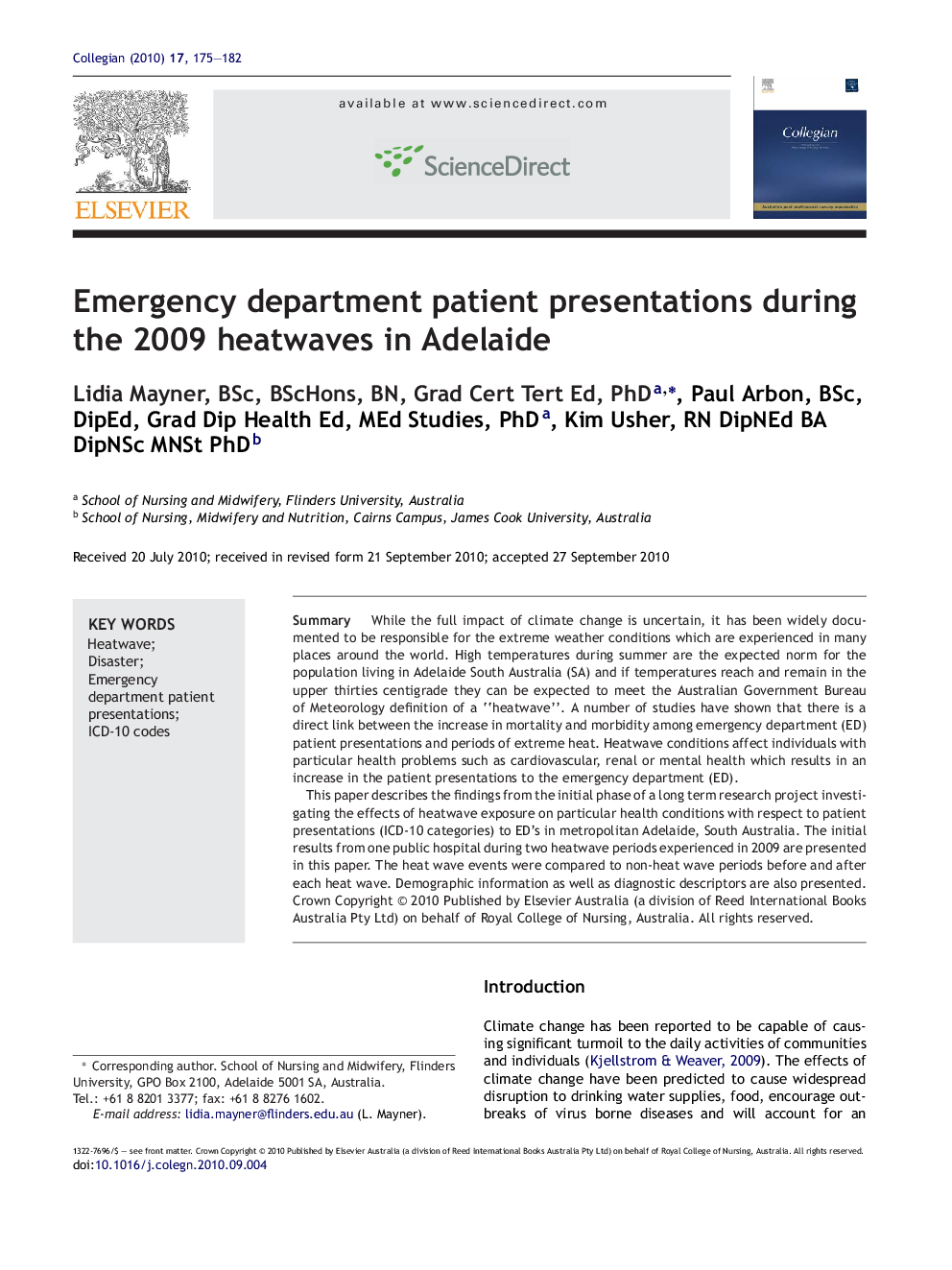| Article ID | Journal | Published Year | Pages | File Type |
|---|---|---|---|---|
| 2646741 | Collegian | 2010 | 8 Pages |
SummaryWhile the full impact of climate change is uncertain, it has been widely documented to be responsible for the extreme weather conditions which are experienced in many places around the world. High temperatures during summer are the expected norm for the population living in Adelaide South Australia (SA) and if temperatures reach and remain in the upper thirties centigrade they can be expected to meet the Australian Government Bureau of Meteorology definition of a “heatwave”. A number of studies have shown that there is a direct link between the increase in mortality and morbidity among emergency department (ED) patient presentations and periods of extreme heat. Heatwave conditions affect individuals with particular health problems such as cardiovascular, renal or mental health which results in an increase in the patient presentations to the emergency department (ED).This paper describes the findings from the initial phase of a long term research project investigating the effects of heatwave exposure on particular health conditions with respect to patient presentations (ICD-10 categories) to ED's in metropolitan Adelaide, South Australia. The initial results from one public hospital during two heatwave periods experienced in 2009 are presented in this paper. The heat wave events were compared to non-heat wave periods before and after each heat wave. Demographic information as well as diagnostic descriptors are also presented.
